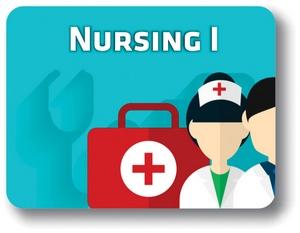
Nursing is an in-demand career, perfect for someone looking for a rewarding and challenging vocation in the healthcare sector. With a strong focus on patient care, a nurse must be skilled in communication, promoting wellness, and understanding safety in the workplace. In Health Science: Nursing, you will explore communication and ethics, anatomy and physiology, and the practice of nursing. Learn how to build relationships with individuals, families, and communities and how to develop wellness strategies for your patients. From emergency to rehabilitative care to advances and challenges in the healthcare industry, discover how you can launch a fulfilling career providing care to others.
Unit 1: Opportunities in Nursing
Nursing is a meaningful and satisfying career choice, and the demand for nurses has never been higher! But how do you become a nurse? To begin, you may want to learn about training to become a nurse, different nursing jobs, and the basics of what a nurse can do. So many opportunities are available in the diverse and constantly evolving field of nursing, so let’s start exploring what it takes to enter this popular and essential profession!
What will you learn in this unit?
Unit 2: The Healthcare System
Insurance, co-payments, public, private—it’s so confusing! How does the healthcare system work? Just like the many parts of the body work together, our modern health system is made up of many parts that work together to deliver healthcare. Learn some of the history of healthcare, the different parts of our modern healthcare systems, and find out how this complex system delivers care to diverse people. Plus, discover the important role nurses play at every level of the system!
What will you learn in this unit?
Unit 3: The Human Body & Body Systems
The human body is nothing short of amazing. In this unit, you will be introduced to basic human anatomy and physiology. You’ll also become familiar with the complex structure of tissues, organs, cells, and the various systems within the body. While exploring how these things are organized, you will gain an understanding of how all of these parts interact and depend on each other.
What will you learn in this unit?
Unit 4: Ethical & Quality Care
Right and wrong. Black and white. It would be nice if all ethical decisions could be so clear. Since ethics in medicine involves weighing many factors, it’s a bit more complicated to figure out the right thing to do. Luckily, nursing has some guidelines that help you make good decisions. Plus, there are laws you need to know and follow to be a nurse. Using case studies containing difficult situations, you will get to decide what you might do if you were to find yourself in the same spot!
What will you learn in this unit?
Unit 5: Building Relationships
Are you a good listener? Or do you like to talk? Either way, one nursing skill that will change how you communicate professionally is active listening. Communication is one of the most important skills in nursing–both with patients and colleagues on the healthcare team–and one of the most important life skills too! Effective and sensitive communication will allow your patients to trust you so that you can better care for them. So, read on, and learn interesting facts about communication, techniques to improve communication, the things that can hinder communication, and even what it takes to become a leader in healthcare.
What will you learn in this unit?
Unit 6: Wellness Strategies for a Healthy Lifestyle
What happens if we think about health rather than sickness? As a nurse, your job is to promote health, which does involve healing illness, but think on the positive side. Wellness and well-being are an optimistic way of thinking about a job in healthcare—a cup half-full rather than half-empty. Nurses have a pivotal role in gently helping improve patients’ wellness, and there are so many interesting ways to go about it (and even some really cool and weird ways). From preventive self-care to alternative energy medicine, thinking about the whole health of the person can be inspiring!
What will you learn in this unit?
